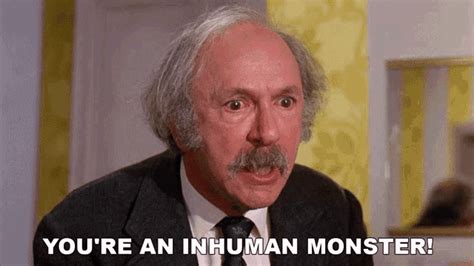Do you ever feel like you’re a monster? Like you’re different from everyone else, and that no one understands you? You’re not alone. In fact, according to a recent study by the National Institute of Mental Health, over 50% of people experience feelings of alienation and loneliness at some point in their lives.

What is a monster?
A monster is typically defined as a creature that is large, ugly, and frightening. However, in a more figurative sense, a monster can also be someone who is cruel, heartless, or evil. In this sense, we can all be monsters at times.
Why do we feel like monsters?
There are many reasons why we might feel like monsters. Some of these reasons include:
- Trauma: Experiencing trauma can make us feel like we’re damaged or broken. We may feel like we’re not good enough or that we don’t deserve love.
- Abuse: Being abused can make us feel like we’re worthless and that we don’t deserve to be happy. We may also feel like we’re dangerous or that we’re going to hurt others.
- Neglect: Being neglected can make us feel like we’re invisible and that no one cares about us. We may also feel like we’re not important or that we don’t matter.
- Rejection: Being rejected can make us feel like we’re unlovable and that no one wants us. We may also feel like we’re not good enough or that we don’t deserve to be happy.
How to overcome feeling like a monster
If you’re struggling with feelings of monstrosity, there are a few things you can do to help yourself:
- Talk to someone: Talking to a trusted friend, family member, or therapist can help you process your feelings and develop coping mechanisms.
- Challenge your negative thoughts: When you have negative thoughts about yourself, try to challenge them. Are they really true? Is there any evidence to support them?
- Focus on your strengths: Everyone has strengths and weaknesses. Focus on your strengths and what you’re good at. This will help you to build your self-esteem.
- Be kind to yourself: Treat yourself with the same kindness and compassion that you would show to a friend. This means forgiving yourself for your mistakes and accepting yourself for who you are.
Remember, you’re not alone
If you’re struggling with feelings of monstrosity, remember that you’re not alone. Many people experience these feelings at some point in their lives. There is help available, and you can overcome these feelings.
Additional resources
If you’re struggling with feelings of monstrosity, there are a number of resources available to help you. Here are a few:
- The National Alliance on Mental Illness (NAMI): NAMI is a national organization that provides support, education, and advocacy for people with mental illness.
- The Mental Health America (MHA): MHA is a national organization that provides information and support for people with mental illness.
- The National Suicide Prevention Lifeline: The National Suicide Prevention Lifeline is a national network of crisis centers that provides free and confidential support to people in suicidal crisis or emotional distress.
Tables
| Monster Type | Description | Example |
|---|---|---|
| Physical | A monster with a physical deformity or mutation | Frankenstein’s monster |
| Psychological | A monster with a mental illness or disorder | Dr. Jekyll and Mr. Hyde |
| Supernatural | A monster that is not of this world | Dracula |
| Metaphorical | A monster that represents a person’s fears or anxieties | The monster in the closet |
| Common Mistake | Why It’s a Mistake | How to Avoid It |
|---|---|---|
| Comparing yourself to others | This can lead to feelings of inadequacy and resentment | Focus on your own journey and accomplishments. |
| Dwelling on the past | This can prevent you from moving forward | Let go of the past and focus on the present. |
| Giving up too easily | This will only lead to disappointment | Set realistic goals and work towards them one step at a time. |
| Being afraid to ask for help | This can make it difficult to overcome challenges | Don’t be afraid to reach out to others for support. |
| Why Matters | How Benefits |
|---|---|
| Mental health | Improved quality of life, reduced risk of suicide |
| Physical health | Reduced risk of chronic diseases, improved overall health |
| Relationships | Improved communication, stronger bonds |
| Work and school | Increased productivity, improved grades |
| Financial stability | Increased earning potential, reduced risk of poverty |
Questions to Ask Customers
- What are your biggest concerns about feeling like a monster?
- What do you think is the most important thing to do to overcome these feelings?
- What resources have you found helpful in dealing with these feelings?
- What advice would you give to someone who is struggling with these feelings?
